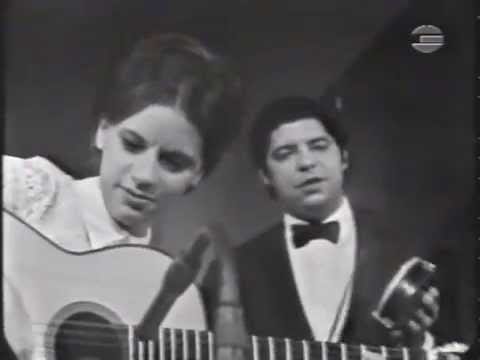In Praise of Yet Another Fierce Woman
Rosinha de Valença's headspinning approach to Brazilian guitar
She learned to play guitar by listening to the radio.
Against the wishes of her family, Rosinha de Valença moved from the (rural, mountainous) town of Valença north of Rio de Janeiro to the city itself in order to pursue music. She was in her early ‘20s, and within months she had a champion, a journalist named Sergio Porto. He introduced her to Baden Powell, the peerless master of the nylon string guitar; the two played together frequently, and it’s easy to hear why. Valença approaches the music as Powell did, concentrating on the rhythm not measure by measure but rather attack by attack. Each strike of fingers on strings is rendered with a lowkey demonic precision, in ways that electrify the pulse.
Below: A 1966 Valença performance from German TV of the Powell classic “Consolação.” Check the unwavering lock, and the way she glances at stealth dissonances within the long expanses of the tonic chord.
Within a year of arriving in Rio, Valença had recorded her breathtaking debut and was performing regularly with Brazilian luminaries like Silvia Telles and Nara Leao. From there she recorded two albums with Sergio Mendes that helped launch him internationally, and joined his group for a pivotal 8-month tour of the U.S. in the mid ‘60s.
Everything Valença recorded is necessary listening, alive with sparks of inspiration and discovery. For me, her 1973 self-titled release on Som Livre is the apex. Guitar still occupies the place of primary importance, but check the level of interaction between Valença and the (alas uncredited) band. The set includees Valença’s spry post-bossa original music and an impressionistic rendering of Dorival Caymmi’s “Moreno do Mar.” Also here is a startlingly modern take on one of Brazil’s unofficial anthems — Luiz Gonzaga’s “Asa Branca,” which was written in 1947 and has been recorded by artists of every generation since. Few interpretations travel as far, however: She completely reharmonizes the short melody, retaining the stirring simplicity of the theme while finding a fierceness and an elasticity that others missed.
And while listening, think about this: The conditions that led to us knowing about Valença’s music have almost completely vanished. There’s less music to study on the (free to all) radio, and that’s before we make any critical judgment about quality. There are frightningly few journalists in positions that encourage advocacy of unknown artists. Other artists still operate as mentors and champions, thankfully, but the environment that allowed a woman from the mountains to captivate Rio through word of mouth and then an 8-month residency at the famed bossa locus the Bottle club? That doesn’t exist anymore. And we are poorer for it.





Thanks for the intro to this magical musician, I loved what I heard and am keen to hear more!